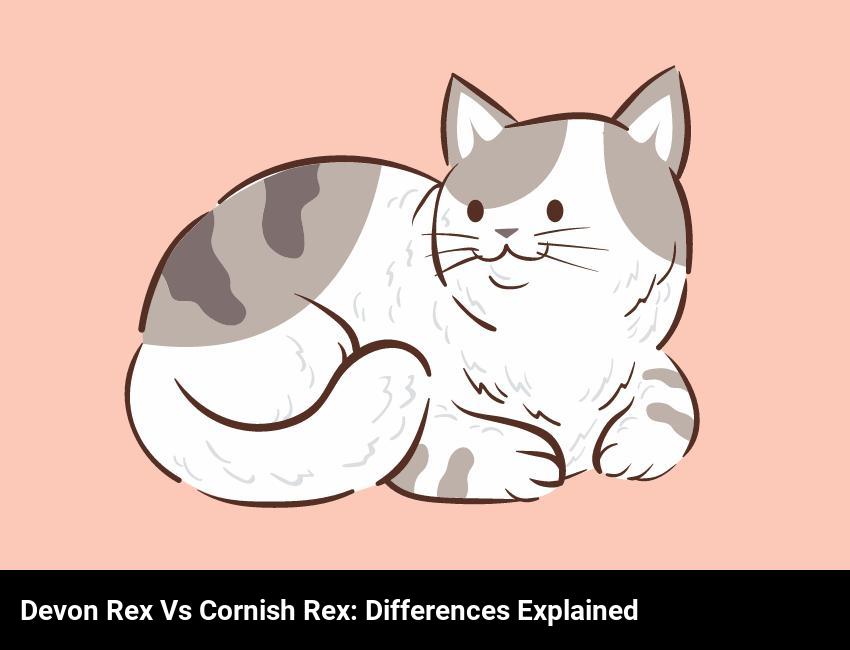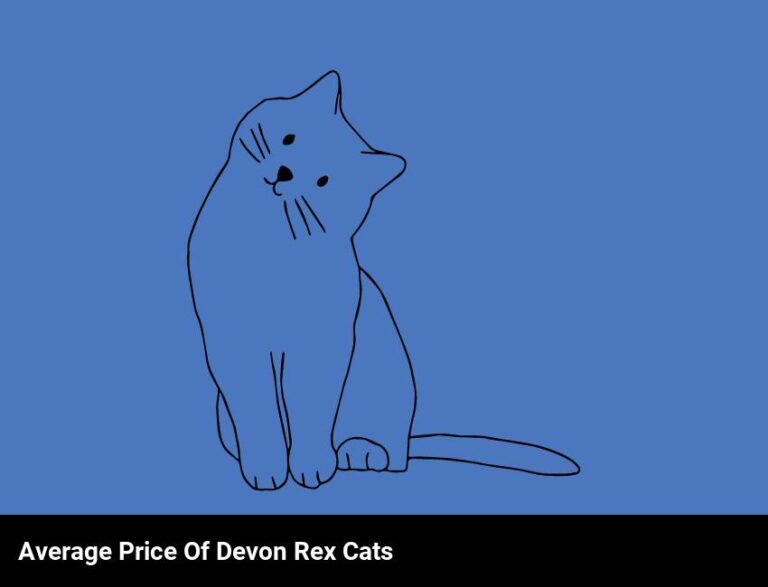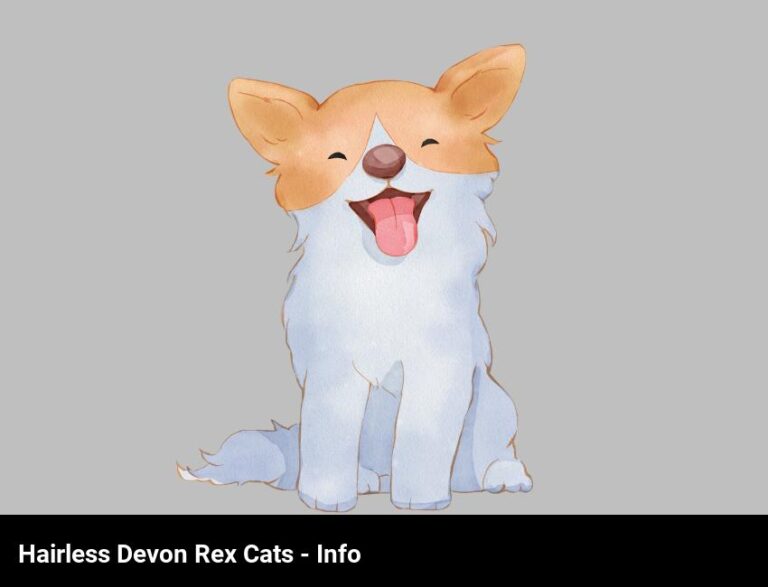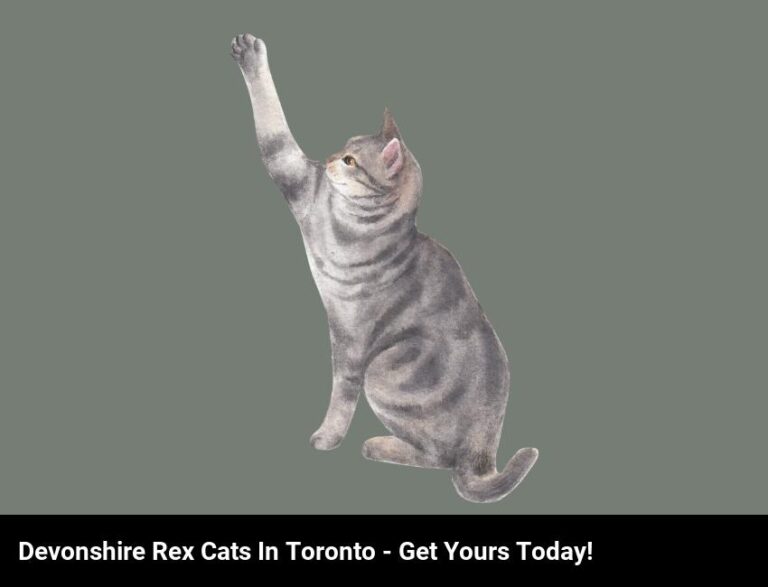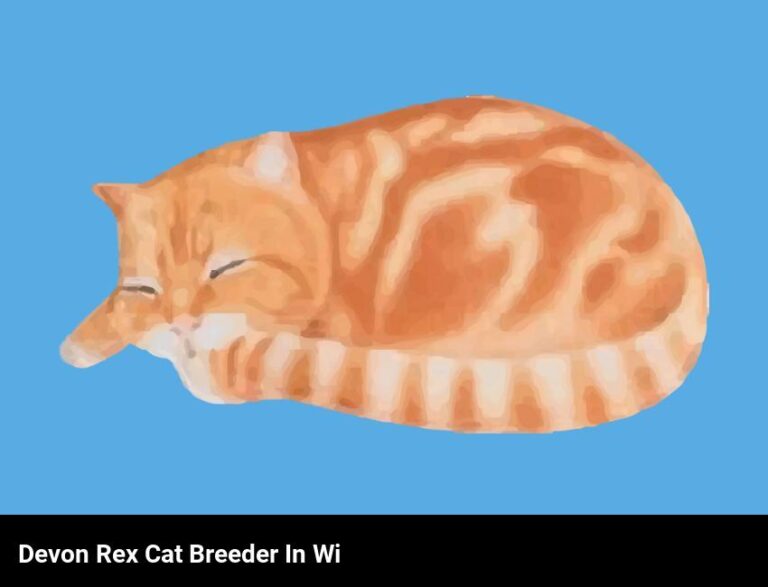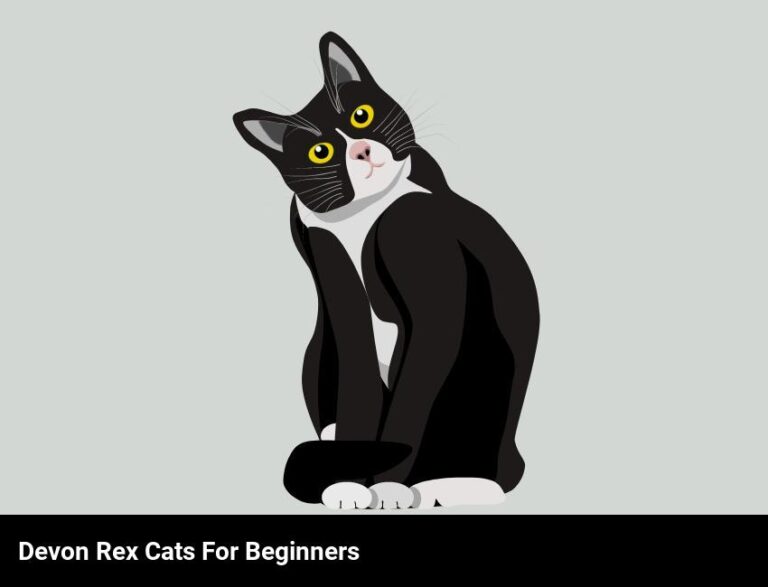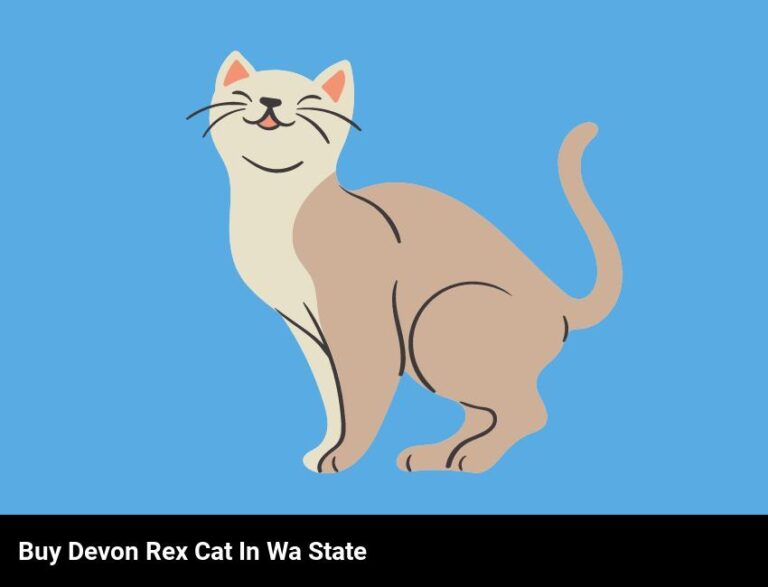Understand The Difference Between Devon Rex And Cornish Rex Cats
Devon Rex cats are known for their curly, soft coats, while Cornish Rex cats have short, wavy coats. Devon Rex cats have large ears and short noses, while Cornish Rex cats have small ears and long noses. Both breeds are intelligent, mischievous and affectionate.
As a cat lover, I was curious to find out more about the differences between Devon Rex and Cornish Rex cats. I have owned both breeds, and can tell you right away that these cats have some distinct characteristics that make them stand out. They have different appearances, temperaments and grooming needs.
The Devon Rex cats are known for their unique appearance – they have big eyes, large ears, and a curly coat. They have a playful and curious nature, and they can be quite vocal. They’re on the smaller side in terms of size, but they are still able to demand attention with their personalities.
The Cornish Rex cats are also quite unique, with their short, wavy coats and slender frames. They have a mischievous nature and can be quite active. They require a bit more grooming than Devon Rex cats, but their coats are still relatively low-maintenance.
In this blog, I’ll be exploring the differences between Devon Rex and Cornish Rex cats and providing an overview of their temperaments, size, coat textures, and health concerns.
What makes devon rex cats unique?
Are you looking for a fiercely loyal, smart, and outgoing companion? Then the Devon Rex cat is the perfect choice for you. These cats have a distinct appearance and personality that sets them apart from other breeds. They are known for their charming and mischievous behavior that will keep you entertained all day long.
So what makes them unique? Firstly, their short, extremely curly coats. The Devon Rex has a unique, wavy coat that is softer and thinner than other breeds. This makes them more sensitive to temperature, so they love being snuggled up with their owners. They also have large ears that are set low on the head, giving them a distinctive look.
Another amazing feature of the Devon Rex is their intelligence. These cats are known to be very curious and are always looking for something to explore or play with. They can be taught to do tricks and can even learn to open cupboards and doors.
And lastly, their outgoing and friendly personalities. Devon Rex cats are extremely loyal and love being around people. They are known for their cheerfulness and willingness to cuddle up with their owners. They also get along well with other animals, making them a great family pet.
Overall, Devon Rex cats are unique in their appearance, intelligence, and outgoing personality. If you’re looking for an entertaining, loyal and smart companion, then a Devon Rex cat is the perfect choice for you.
How do devon rex cats differ in appearance compared to cornish rex cats?
If you’re looking for a unique and beautiful cat, you’ll want to consider the Devon Rex and Cornish Rex. While both of these cats are members of the Rex family, they’re definitely different in terms of appearance. Here’s how:
- Devon Rex cats have big ears, a wide-eyed, wild look, and a curly, almost-frizzled coat. They have large, full eyes, and a wedge-shaped head.
- In comparison, Cornish Rex cats have a more delicate and slender look. Their coats are also much curlier than that of the Devon Rex, and they have a more pointed face.
- Devon Rex cats are often mistaken for monkeys due to their mischievous facial expressions and large ears. On the other hand, Cornish Rex cats look almost like a fox with their pointed face and curly coat.
- In terms of size, Devon Rex cats tend to be larger, while Cornish Rex cats are more petite.
- Devon Rex cats come in a variety of colors, while Cornish Rex cats are mostly white or light-colored.
If you’re looking for a unique and beautiful cat, you can’t go wrong with either the Devon Rex or Cornish Rex. Just remember, Devon Rex cats have a more wild look with big ears and a wide-eyed, mischievous expression, while Cornish Rex cats have a more delicate and slender look with a pointed face and curly coat.
How do devon rex cats differ in size compared to cornish rex cats?
If you’re curious about the size difference between Devon Rex and Cornish Rex cats, here’s what you need to know:
- Devon Rex cats generally weigh between five and nine pounds, making them a medium to small-sized breed.
- Cornish Rex cats are usually even smaller, weighing between three and five pounds.
- Devon Rex cats have a slender build, with long legs and a small head.
- Cornish Rex cats have a thick, muscular body and are more compact than Devon Rex cats.
- Both breeds have soft fur, but the Devon Rex’s fur is softer and fluffier than that of the Cornish Rex.
So, if you’re looking for a small and cuddly companion, a Cornish Rex might be the right fit for you. If you’re looking for a slightly bigger kitty with a softer coat, a Devon Rex could be the perfect choice.
How do devon rex cats differ in coat texture compared to cornish rex cats?
Yes, Devon Rex and Cornish Rex cats look very similar, but their coats have some distinct differences! Here’s a guide to understanding the difference between their coat textures:
- The Devon Rex has a more wavy coat than the Cornish Rex. This gives it a soft, silky, and plush feel.
- Devon Rex cats also have a shorter coat than Cornish Rex cats, which makes them appear even more wavy.
- The Cornish Rex has a very short, fine coat that feels almost like velvet or cashmere.
- The Cornish Rex coat also has an almost curly or kinked texture to it, which the Devon Rex does not.
- Both Devon and Cornish Rex cats tend to shed very little, but the Devon Rex will shed less due to their shorter coats.
What is the temperament of a devon rex cat?
Are you considering getting a Devon Rex cat as a pet? You are likely wondering what their temperament is like. Devon Rex cats are known for their unique appearance and mischievous personalities. They are outgoing and friendly with their owners and love to be the center of attention.
Devon Rex cats bond closely with their owners and are quite affectionate. They are naturally curious and love to explore their homes. They also enjoy playing with their owners and often show an interest in learning new things. They are very intelligent and can easily be taught tricks.
These cats also have a playful nature. They tend to be very active and you can expect plenty of energy from a Devon Rex cat. They are known to jump around and climb furniture, so it is important to provide a safe environment for your cat.
Devon Rex cats are also known for their vocal nature. They tend to vocalize a lot and can be quite vocal when they want something. They also love to cuddle and can be quite clingy at times.
Overall, Devon Rex cats are known for their outgoing and friendly personalities. They make great companions and can be lovable and playful when given the chance. So if you are looking for a cat that is full of life and personality, then the Devon Rex may be the perfect companion for you.
What is the grooming needs of a devon rex cat?
If you’re considering getting a Devon Rex cat, you’ll want to know their grooming needs. As an affectionate cat breed, the Devon Rex requires regular brushing and combing to keep its silky-soft fur in top condition.
Their short, curly hair does not have an undercoat, so they require much less frequent bathing than most other cats. In fact, bathing should only be done once or twice a year at most. Even when bathing, it’s important to use a mild shampoo specially designed for cats. This prevents skin irritation and helps the coat stay healthy.
The Devon Rex also needs regular nail trims to keep them from becoming too long. This is especially important because the Devon Rex loves to climb and jump – long nails can be dangerous. The breed is also highly active, so they need plenty of toys and activities to keep them occupied.
Finally, regular brushing helps to keep the Devon Rex’s skin healthy and free of parasites. A good quality bristle brush is ideal for brushing and combing out the cats short coat. This helps to prevent mats and tangles, as well as reducing shedding and keeping the coat looking beautiful.
In summary, Devon Rex cats need regular grooming to keep them looking and feeling their best. This includes regular brushing and combing, occasional baths, and regular nail trims. They also need plenty of toys and activities to keep them active and engaged. With the right care, the Devon Rex can be a loving and loyal companion.
What are the health concerns for devon rex cats?
The Devon Rex is a unique and energetic breed of cat, but they do have some health concerns to consider. One common health concern for Devon Rex cats is that they are prone to developing allergies. They can be allergic to a variety of things, including food, pollen, and dust mites. If your Devon Rex cat is showing signs of allergies, it’s important to take them to the vet for an allergy test to determine the cause.
Another health concern is that Devon Rex cats can have a sensitive digestive system and can get digestive problems like diarrhea and vomiting. To help prevent this, make sure they’re eating a balanced diet and avoid switching their food too often.
Devon Rex cats are also at higher risk for developing arthritis and joint problems. This is due to their slim body type and lack of fur. To help reduce the risk of joint problems, it’s important to make sure they’re getting plenty of exercise and staying active.
Finally, Devon Rex cats can be more prone to developing respiratory problems due to their flat faces and short noses. To reduce the risk of respiratory problems, make sure your Devon Rex cat is living in a clean, dust-free environment and has access to clean, filtered air.
Overall, Devon Rex cats are a fun and exciting breed to own, but it’s important to be aware of their potential health concerns. With the right care and attention, you can keep your Devon Rex cat healthy and happy for many years to come.
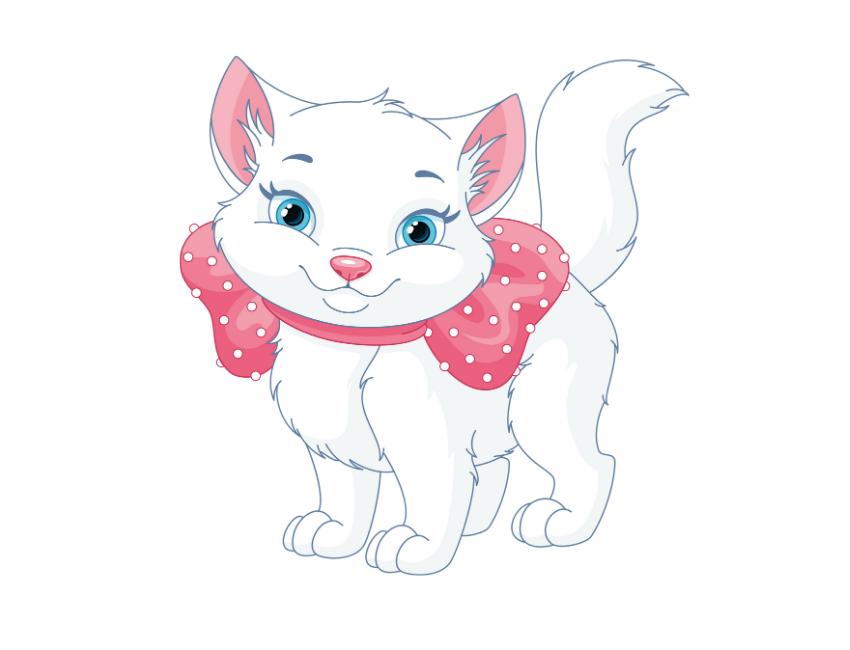
Frequently Asked Questions
Can you tell which rex cat you have just by looking at them?
No, it’s not possible to tell which Rex cat you have just by looking at them. Both Devon and Cornish Rex cats share certain physical characteristics, such as curly fur, large eyes, and ears that are set low on their heads. However, Devon Rex cats have a more delicate, narrow face and a larger, fuller tail than Cornish Rex cats. To be sure, it’s best to ask an expert or do your own research.
What kind of activities do devon and cornish rex cats enjoy?
Devon and Cornish Rex cats are active cats that enjoy a variety of activities. They love to play with interactive toys, explore their environment, and spend time with their owners. They can also be taught to perform tricks and take part in agility courses. With patience and plenty of treats, you can help your Devon or Cornish Rex cat develop skills and discover new interests.
Are there any specific dietary needs to keep in mind when caring for devon or cornish rex cats?
Yes, there are some specific dietary needs to consider when caring for Devon or Cornish Rex cats. Both cats are prone to food sensitivities, so it’s best to feed them a high-quality, grain-free diet with a moderate protein content. Also, avoid giving them foods high in carbohydrates, as those can lead to health issues in the long run. Additionally, make sure to keep their water bowl full at all times, as these cats can easily become dehydrated.

